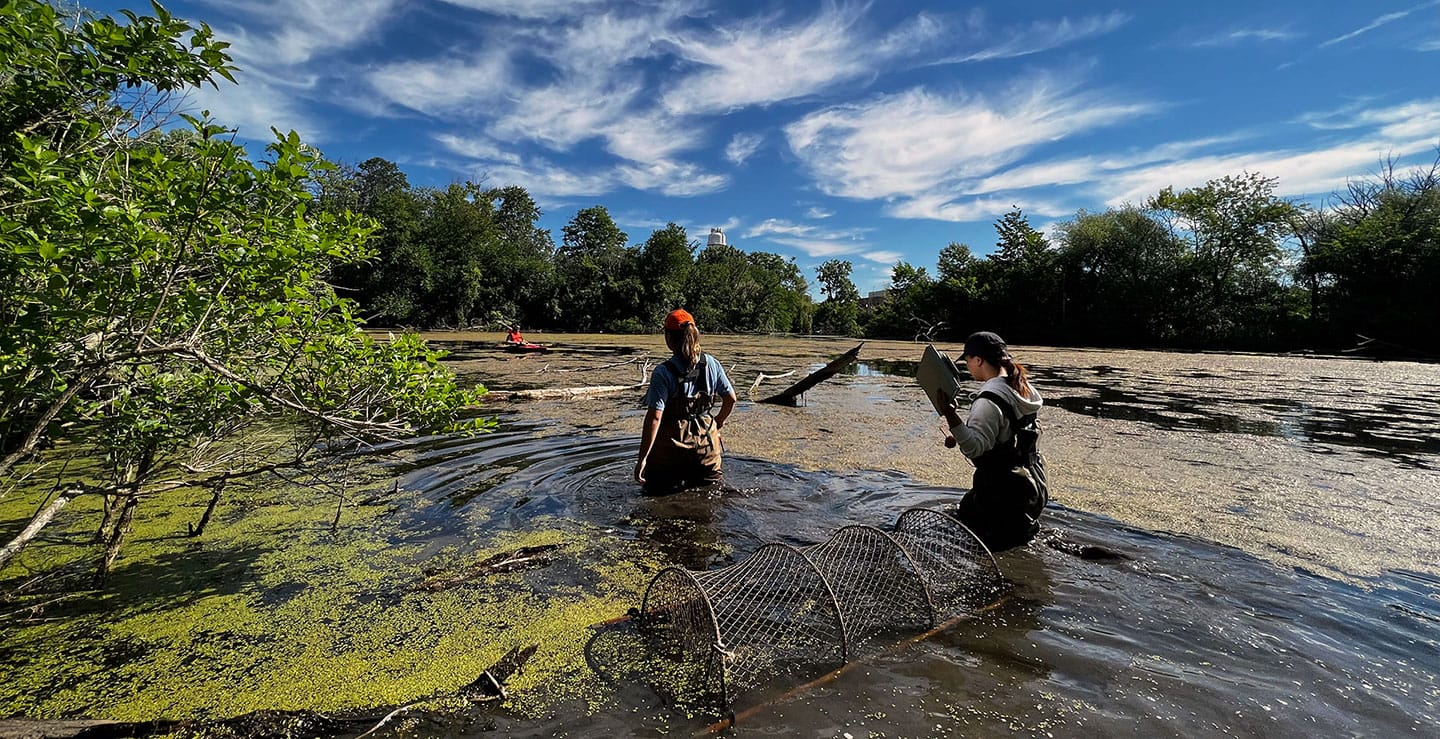Capstone Project
Students in the environmental science minor can work on projects involving laboratory and field study that integrate the principle and practice of environmental issues. The experience culminates in written and oral presentation of the findings.
A springboard into various environmental fields
While an environmental sciences minor itself might not qualify you for all positions, it gives you a springboard into various environmental fields by showcasing your interest and foundational knowledge. Here are 3-5 career paths you could explore with an environmental sciences minor:
- Sustainability Specialist: With companies increasingly focusing on environmentally friendly practices, sustainability specialists are in demand. You’d advise businesses on reducing their environmental impact, implementing sustainable practices, and communicating these efforts to stakeholders.
- Environmental Educator: Foster environmental awareness and inspire action by educating others. This could involve roles in nature centers, museums, parks, or even K-12 education, developing engaging programs and materials about environmental issues.
- Environmental Policy Analyst: Contribute to shaping environmental policy by analyzing data, researching issues, and providing recommendations to policymakers. You could work for government agencies, NGOs, or research institutions, influencing environmental regulations and legislation.
- Field Researcher: Collect and analyze environmental data in the field, contributing to scientific understanding of ecosystems, pollution levels, or climate change. This could involve working for government agencies, universities, or environmental consultancies.
- Environmental Consultant: Advise businesses, government agencies, and other organizations on complying with environmental regulations, minimizing their environmental impact, and assessing potential environmental risks. This path typically requires further education or experience in specific environmental areas.
Remember, these are just a few starting points. Your minor, combined with your major, interests, and additional skills, can open doors to diverse environmental careers. Consider internships, volunteer work, and networking to gain experience and explore specific areas that resonate with you.
Key Courses for Environmental Science Minor at Benedictine University
Foundation:
- Ecology (focuses on understanding ecosystems and their response to change)
- Environmental Science (provides a broad overview of key issues and solutions)
Specialization:
- Conservation Biology (preserves biodiversity and manages vulnerable species)
- Climate Change (analyzes the science and impacts)
- Renewable Energy (explores technologies and systems for clean energy production)
- Environmental Sustainability (examines strategies for businesses and organizations to minimize their impact)
- Environmental Policy & Ethics (explores the legal framework and ethical considerations)
Interdisciplinary Perspectives:
- Environmental Anthropology (investigates the relationship between human culture and the environment)
- Environmental Economics (applies economic principles to assess issues and solutions)
- Environmental Literature (explores literary representations of the environment and challenges)
- Faith & Science (examines the intersection of religious beliefs and scientific understanding)
Remember: Choose courses that align with your specific interests and career goals within the environmental field.

